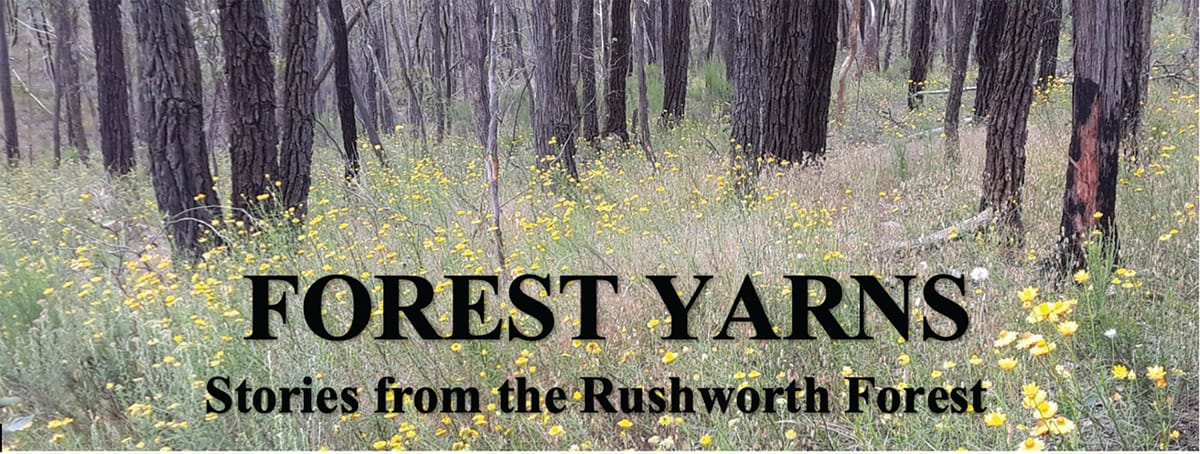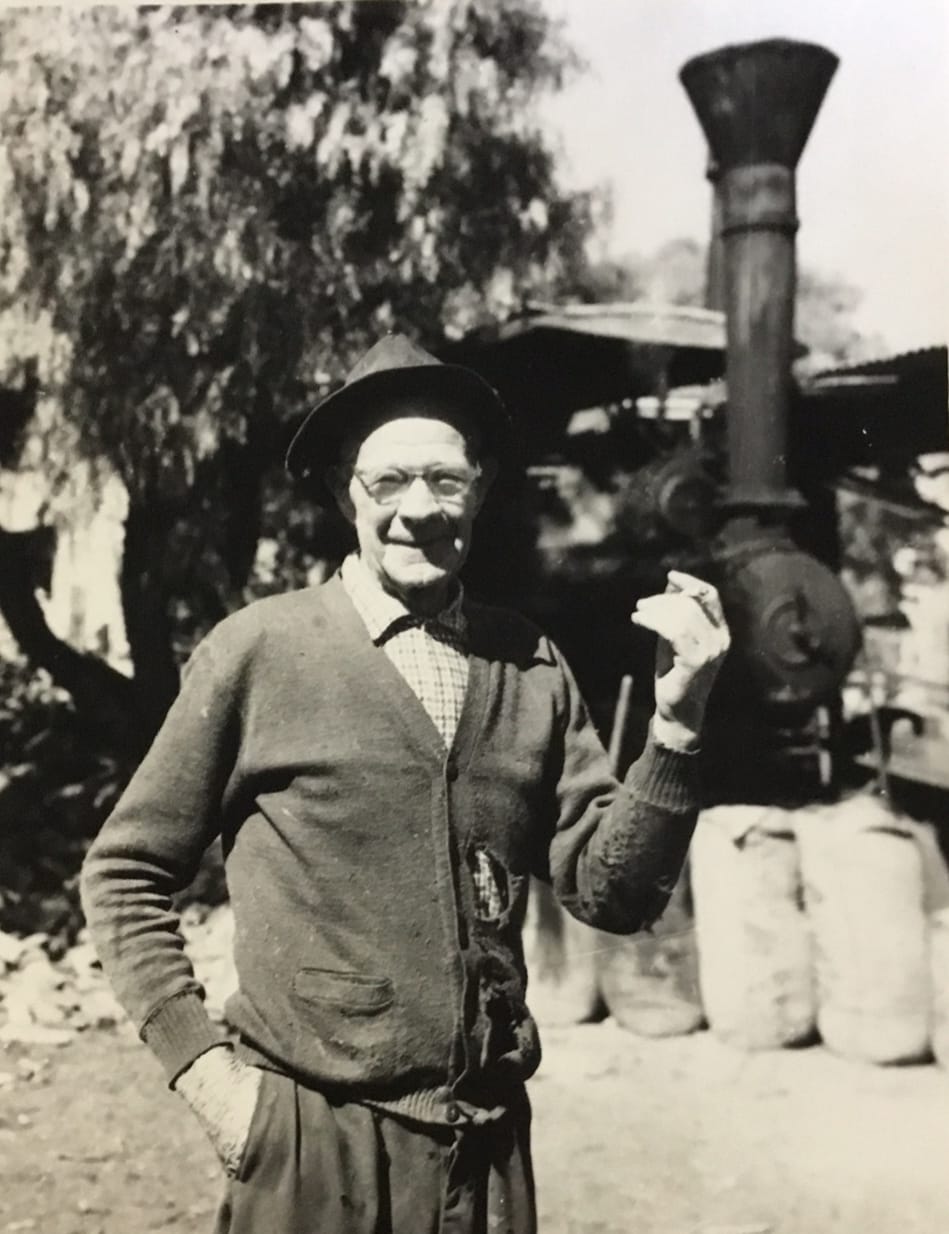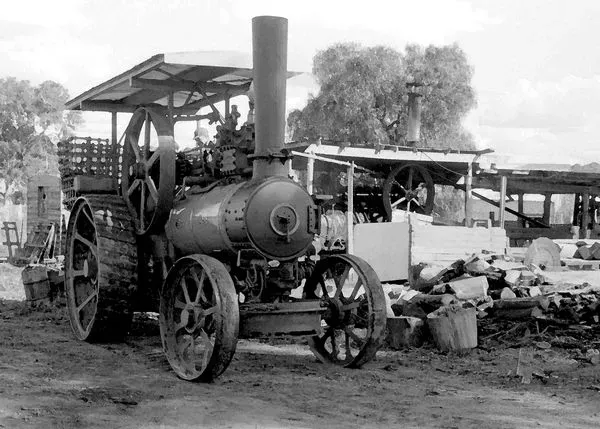Risstrom’s timber mills

Risstrom is one of the family names synonymous with the timber industry in Rushworth. Without going into too much detail on family history, because the story is well documented elsewhere, the progenitor of the family in Australia, Eric Ollov Risstrom, emigrated from Sweden. He and his wife Mary came to Rushworth with their six surviving children in 1878. Another daughter was born soon afterwards.
One of their grandchildren was Ollov George – known simply as George – who became a legendary figure in the local timber industry and in relation to his dedicated work in many significant community organisations.
George Risstrom
George was born in Rushworth in 1890. In 1912, he married Ethel Jean Anderson, whose father William was a stalwart of the local timber industry. William Anderson was born in Whroo in 1866 and for much of his career worked in a sawmilling partnership with William Colliver. George and Ethel Risstrom went on to have seven children of their own, including five boys and two girls. One of those girls is the very stylish 99 year old Peggy, who lives at Waranga Aged Care.

The family acquired a traction engine just before the start of the Great War. One of the primary functions of the engine was to cart timber out of the forest to wood mills at the railway station when weather and road conditions permitted. The Rushworth museum website states that it was one of nine traction engines operating around the town in the first three decades of the twentieth century. At one point, the Risstroms leased an additional traction engine from the Aherns.1
Timber mill
George set up a timber mill around 1930 on a block of land which at the time ran through from Murchison Road (now number 13) to Taylor Street (now number 11). A whole range of timber products were produced there, including building and fencing materials. As well as this mill, the family had a wood mill at the nearby railway station, which supplied firewood to the voracious Melbourne market. Three sons – Ron, Jack and Roy – all worked in the business, which in later years was managed by Ron and then, in turn, Ron’s son Wes.

The Risstrom mill, which was the last substantial mill in the town, closed in the early 2000s after over seventy years of operation. It was getting harder and harder to access the required amount of timber from the forest to make for a continuing viable business.
Community service
As well as running the family business, George was heavily involved in community service. Perhaps most notably, he was President of the Rushworth Football Club from 1934 to 1953. The club was in recess during the war from 1941-5, but that still represents fifteen years in the demanding role of President. George relinquished the position to his son Ron in 1954, with Ron serving for another eleven years until the club left the GV Football League at the end of the 1964 season. Both George and Ron served the GVFL in various capacities with both receiving Life Memberships of that organisation.
Rushworth’s Wood Day committee, of which George was President for a time, ran the Easter Carnival which in the late 1940s boasted an incredible array of events. They included a street procession, a Queen competition, wood sales, a dance on the Saturday night and a “Grand Ball” on the Monday night, in conjunction with euchre played in the supper room of the Shire Hall “till 2am”2.
As a young man, George had served in the local unit of the 7th Light Horse Regiment. He was active in supporting the Mooroopna Hospital and was awarded a Life Governorship by the hospital in 1930. This was similar to a life membership.
Like many Rushworth businesspeople, George took an interest in gold mining. He was a director of Rushworth Gold Mines NL, a company that was floated in 1955.
End of an era
George Risstrom worked in the timber industry all his life. Even after retirement, he “turned up each morning, got the fire going in the drum and sat ready to sharpen the mill saws and saws of other wood blokes.”3 He just loved being part of the industry right up until his death in 1966.
The involvement of the Risstrom family in the timber industry ceased in the early 2000s when access to the forest was severely limited and orders could not be filled.
SOURCES: 1 Interview with Wes Risstrom; 2 Kyabram Free Press 14.4.1949; 3 Shepparton News 6.7.2015; Other – Ancestry, Trove, Shepparton News articles, Rushworth Museum




